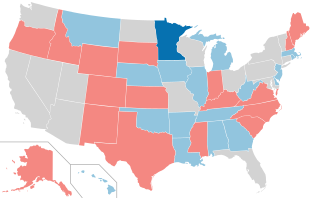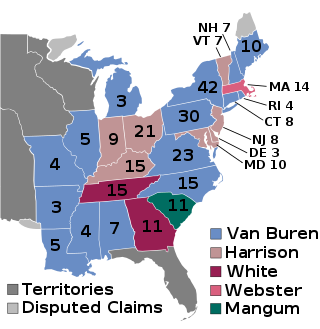External links
| | This article related to a European Liberal party is a stub. You can help Wikipedia by expanding it. |
| | This article about an Austrian political party is a stub. You can help Wikipedia by expanding it. |
The Democrats (German : Die Demokraten) were a minor Austrian political party.
The party was founded in 1991 as a split from the FPÖ by the former secretary of state Mario Ferrari-Brunnenfeld (initially as FDP Österreich). It became publicly notable under the leadership of Rudolf Fußi, who protested against the government's intent to purchase new Eurofighter jets. He initiated a referendum on this topic (Anti-Abfangjäger-Volksbegehren). The Democrats saw themselves as a democratic, liberal party, promoting equal opportunities, a market economy, environmental protection, openness and tolerance.
The Democrats participated in only one National Council election, fielding candidates in 2002 in the states of Vienna and Vorarlberg. The party received 0.05% of the vote and won no seats. The party did not stand in 2006, and Fussi defected to the social-democratic SPÖ.
The Association of Free Democrats was a liberal coalition, later party, formed in East Germany on 12 February 1990. It originally consisted of the Liberal Democratic Party, the Free Democratic Party (GDR) and the German Forum Party. In the Volkskammer election of the 18 March 1990 the Association of Free Democrats, heavily supported by the West German Free Democratic Party, polled 5.28% of the votes and gained 21 seats, all parties running on the same lists. Most of the seats went to Liberal Democratic Party members, whose leader Rainer Ortleb became their parliamentary leader. It then participated in the last GDR government led by Lothar de Maizière.

The 1944 United States Senate elections coincided with the re-election of Franklin D. Roosevelt to his fourth term as president. The 32 seats of Class 3 were contested in regular elections, and three special elections were held to fill vacancies.
Guam elects on the territorial level a governor and a legislature with the governor elected for a four-year term by the people. The Legislature of Guam has fifteen members elected at large in an open primary for two year terms.

The Democratic Party of the Northern Mariana Islands is a political party in the Northern Mariana Islands. It began as a purely local territorial party and is now officially affiliated with the United States' national Democratic Party.

The Democratic Union was a liberal Christian-democratic party in Poland. The party was founded in 1991 by Prime Minister, Christian Democrat Tadeusz Mazowiecki as a merger of the Citizens' Movement for Democratic Action and the Forum of Right Democrats.
The European Democrat Union (EDU) is one of the three European wings of the International Democrat Union, along with the European People's Party (EPP) and the European Conservatives and Reformists Party. Its members include Christian democratic, liberal conservative, and conservative political parties. It is only a nominal sub-entity of the IDU, since it ceased its activities in 2002.

The 1861 California gubernatorial election took place on September 4, 1861. Incumbent Governor John G. Downey was not a candidate for renomination, as his Democratic Party had violently ruptured over the issue of slavery and secession. Downey was a Lecompton Democrat, those who favored slavery in the Kansas Territory and who were running as now as the Breckenridge or "Chivalry" Democrats. These Chivalry Democrats supported Attorney General John McConnell. Anti-slavery or anti-secession Democrats were the "Unionist" Democrats who favored John Conness.
The Democratic Party of Georgia is the affiliate of the Democratic Party in the U.S. state of Georgia. It is one of the two major political parties in the state and is chaired by Nikema Williams.

The 1948 United States elections were held on November 2, 1948. The election took place during the beginning stages of the Cold War. Democratic incumbent President Harry S. Truman was elected to a full term in an upset, defeating Republican nominee New York Governor Thomas E. Dewey and two erstwhile Democrats. The Democrats won back control of Congress from the Republicans. Until 2020, Democrats would never again flip a chamber of Congress in a presidential election cycle.

The District of Columbia Democratic State Committee is the affiliate of the Democratic Party in the District of Columbia.
The Christian Democratic Alliance was a minor political party in South Africa, an alliance of five Christian Democratic parties: the Alliance for Community Transformation, the Christian Democratic Party, the Federation of Democrats, the New Labour Party, and the Party vir Christelike Politiek. These parties continued as independent entities until the 2009 election.

The 1990 United States elections were held on November 6 and elected the members of the 102nd United States Congress. The elections occurred in the middle of Republican President George H. W. Bush's term and during the Gulf War. The Democratic Party slightly built on their control of Congress.

The 1930 United States elections were held on November 4, 1930, in the middle of Republican President Herbert Hoover's term. Taking place shortly after the start of the Great Depression, the Republican Party suffered substantial losses. The election was the last of the Fourth Party System, and marked the first time since 1918 that Democrats controlled either chamber of Congress.

The 1894 United States elections was held on November 6, and elected the members of the 54th United States Congress. These were mid-term elections during Democratic President Grover Cleveland's second term. The Republican landslide of 1894 marked a realigning election In American politics as the nation moved from the Third Party System that had focused on issues of civil war and reconstruction, and entered the Fourth Party System, known as the Progressive Era, which focused on middle class reforms.

The 1916 United States elections elected the members of the 65th United States Congress. The election occurred during the Fourth Party System, six months before the United States entered World War I. Unlike 1912, the Democrats did not benefit from a split in the Republican Party, but the Democrats still retained the Presidency and the majority in the Senate. Democrats lost the majority in the House, but retained control of the chamber.

The 1836 United States elections elected the members of the 25th United States Congress. The election saw the emergence of the Whig Party, which succeeded the National Republican Party in the Second Party System as the primary opposition to the Democratic Party. The Whigs chose their name in symbolic defiance to the leader of the Democratic Party, "King" Andrew Jackson, and supported a national bank and the American System. Despite the emergence of the Whigs as a durable political party, Democrats retained the presidency and a majority in both houses of Congress.
The 1834 United States elections occurred in the middle of Democratic President Andrew Jackson's second term. Members of the 24th United States Congress were chosen in this election. Taking place during the Second Party System, elections were contested between Andrew Jackson's Democratic Party and opponents of Jackson, including the remnants of the National Republican Party. During this election, the anti-Jackson faction began to transition into the Whig Party. Arkansas and Michigan joined the union during the 24th Congress. Democrats retained the majority in the House, and won control of the Senate.

The 1898 Minnesota Senate election was held in the U.S. state of Minnesota on November 8, 1898, to elect members to the Senate of the 31st and 32nd Minnesota Legislatures.

The 1902 Minnesota Senate election was held in the U.S. state of Minnesota on November 4, 1902, to elect members to the Senate of the 33rd and 34th Minnesota Legislatures.